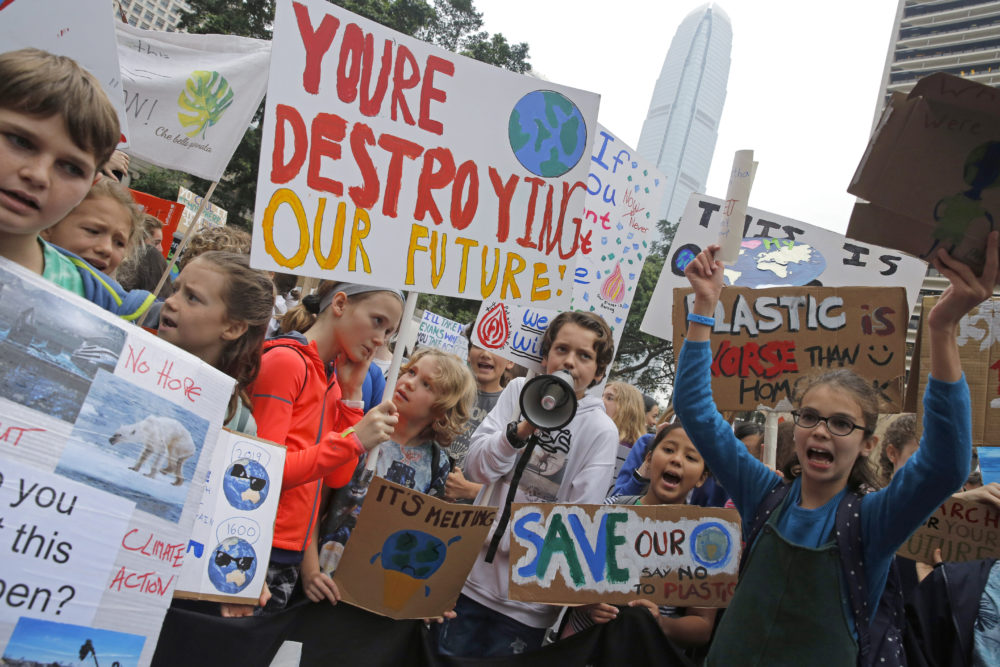“How much backing there will be (of environmental policy) — and in what quarters — depends on the specific environmental, economic and political conditions countries face.” (Gross, 2018)
Despite a long-standing debate among climate activists, the Green New Deal forced many mainstream political leaders to grapple with complex discussions surrounding the inclusion of social inequality initiatives in climate legislation. In many cases reducing social inequality and climate justice goes hand in hand, largely due to the link between the economy and fossil fuel production/consumption. Due to the politicization of these social issues, it may not be effective to present both, despite the need to do so (Mann, 2019). Therefore, the decision to address climate change and social justice together depends on understanding the nuance behind both geopolitical realities and the philosophical undertones within them.
Any legislation has the potential to influence people’s livelihoods and climate legislation is no exception. The fossil fuel industry remains the frontline of a significant rhetorical battle. On one hand, the industry employs hundreds of thousands globally, many of those employed being racialized and working class (Smith, 2014). On the other, those affected by fossil fuel extraction are also disproportionately working-class and racialized – as are those who live in climate-vulnerable regions (Smith, 2014). This presents a false dichotomy: those who belong to minority groups and in the working class are claimed to be negatively affected by both action and inaction on climate change. These realities point to the power of discourse in manipulating public opinion whereby these groups will always seem to be disadvantaged.
In the transition away from fossil fuels, how those in government address the possible negative consequences on those most vulnerable is important, but perhaps equally important is how this aid is framed. Kai Nagata from the Dogwood Institute mentions in a blog post “In the fight against climate change, we must point our energy not at the most vulnerable, but at the most powerful.” (2019) In saying this he makes the argument that the enemies of ‘eco-fascists’, (notably immigrants and racialized individuals), are illusions which shield the rich from much of the blame (Nagata, 2019).
In a lot of the western world, but particularly America, capitalist imaginaries frame a conceptualization of how society simply ‘is’, which is perpetuated in the very nature of the growth of capitalism (Magdoff and Foster, 2011). This naturalization of social constructions could be called cultural hegemony, and it acts to solidify and narrow the Overton window by also solidifying inequality as ‘how the world works’ (Cole, 2020). When pairing environmental legislation with social justice, one must acknowledge that a culture’s cultural hegemony impacts the extent legislation will be seen as even possible. Unfortunately, I believe Nagata’s argument does not take into account the fact that changing the ideologies of those who have blamed marginalized groups for their environmental and economic challenges is an incredibly difficult challenge in itself (sentiments mirrored by some critiquing the green new deal) (Mann, 2019). This would require a considerable amount of time, time which the climate movement does not have.
David Leonhardt mentions in his article “The Problem with Putting a Price on the End of the World” it is now a job of climate activists to present policies which are ‘popular enough to survive the inevitable attacks on them’, rather than find the theoretically most efficient (2019). It would thus be exceedingly difficult to pass a sweeping plan like the Green New Deal if most people do not see the change as possible. Leonhadt’s statement points to the idea that in most systems there isn’t a clear way to achieve bipartisan support. In some cases one might have to sacrifice meaningful social support, and even ideal climate legislation, in exchange for legislation which attracts enough support to pass.
This difficulty was seen first hand in France during the Yellow Vest Movement. The country’s struggling working-class erupted in protests over petroleum carbon taxes which they argued increased their cost of living to insufferable amounts (Gross, 2018). Had the government included social inequality considerations into the bill, much like British Columbia did with its revenue neutral tax (Leonhard, 2019), the discussion could have been much different.
Therefore, the decision to address climate change and social justice together varies in each jurisdiction. Generally, each jurisdiction should pass social assistance legislation to account for any adverse effects of shifting industry, the extent as to which this happens depends on the specific realities surrounding each country. Hence, governments must understand their geopolitical realities in order to not hyperextend the reach of their bills, regardless of the theoretically most effective social policy.
References
Cole, Nicki Lisa. “How the Ruling Class Maintains Power Using Ideas and Norms.” ThoughtCo. ThoughtCo, 06 Jan. 2020. Web. 23 Apr. 2020.
Leonhardt, David. “The Problem With Putting a Price on the End of the World.” The New York Times. The New York Times, 10 Apr. 2019. Web. 23 Apr. 2020.
Magdoff, Fred, and John Bellamy. Foster. “The Growth Imperative of Capitalism.” What Every Environmentalist Needs to Know about Capitalism: A Citizen’s Guide to Capitalism and the Environment. New York, NY: Monthly Review, 2011. N. pag. Print.
Nagata, K. (2019, October 7). Yes, racism is an environmental issue. Retrieved from https://dogwoodbc.ca/news/yes-racism-is-an-environmental-issue/
Gross, Neil. “Is Environmentalism Just for Rich People?” The New York Times. The New York Times, 14 Dec. 2018. Web. 23 Apr. 2020.
